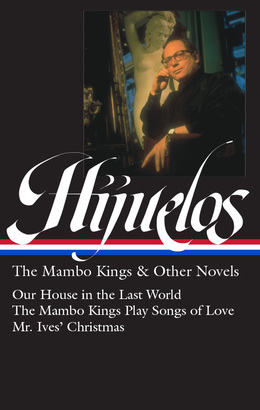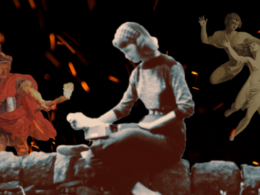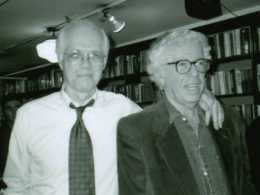Library of America published this fall a collection gathering three novels by Oscar Hijuelos: Our House in the Last World (1983), The Mambo Kings Play Songs of Love (1989), and Mr. Ives’ Christmas (1995). Born in New York to Cuban immigrant parents, Hijuelos died of a heart attack in 2013, at the age of 62. In an obituary, Bruce Weber of The New York Times commended his portraits of immigrant families “absorbing the sometimes assaultive American culture while holding on to an ethnic and national identity” and his “fluid prose, sonorous but more earthy than poetic.”
The LOA volume was edited by Lori Marie Carlson-Hijuelos, an editor, translator, novelist, and anthologist who is the widow of Oscar Hijuelos, and by Laura P. Alonso-Gallo, Professor of English at Barry University in Miami.
Via email, Carlson-Hijuelos discussed her late husband’s life and writing career.
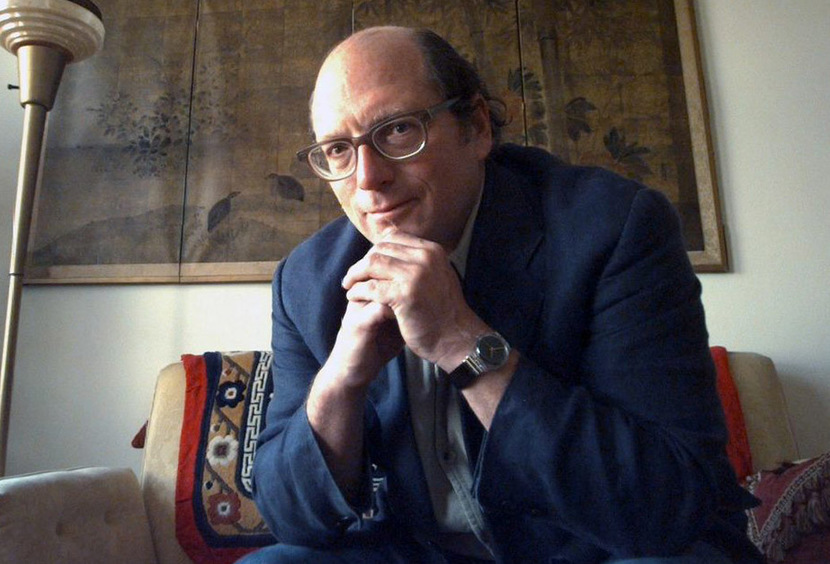
Library of America: As a young boy Hijuelos was taken on a trip to visit family in Cuba, where he contracted nephritis (a kidney disease). Back in the U.S. he was hospitalized for a year in a Connecticut facility. Hijuelos recounted that his mother said he went into the hospital speaking Spanish and came out speaking English. What effect did this experience have on Hijuelos over the long term, especially on his first novel, Our House in the Last World?

Lori Marie Carlson-Hijuelos: Yes, Oscar suffered a severe case of nephritis as a little boy and he was hospitalized for a year in Greenwich, Connecticut, in a facility that no longer exists. But the physiological effects of nephritis, I believe, were not the most damaging effects on Oscar. It was the period following his hospitalization, when Oscar and his mother were basically forced to endure the misery of clinic visits for regular check-ups, that had such painful consequences for him. I say forced to endure because Oscar’s family, as a Cuban immigrant family in the 1950s, was of very modest financial means and could not afford to see expensive doctors in well-appointed, tranquil offices. Oscar told me that he loathed those public clinic visits of long, noisy waits in chaotic rooms and less than genteel courtesy. His mother’s English was tentative, and she was often spoken to harshly by staff because of her linguistic limitations. Oscar felt like a “second-class citizen.” These visits would have a long-term effect on his feelings about seeking medical care. The harmful effects, essentially, were affective. He absolutely dreaded going to the doctor, any doctor, as an adult. As to how his nephritis contributed to his first novel, I would say that it was basically a thematic trigger for exploring family dynamics.
LOA: Library of America included an excerpt from Hijuelos’s The Mambo Kings Play Songs of Love in the anthology Writing New York. It’s a reminder that Hijuelos is not only a great American and a great Cuban American writer but also a great New York writer. How does New York City figure in his work?
Carlson-Hijuelos: This is an easy question for me to answer. Oscar loved New York City. It was at the heart of his life and work. Manhattan was at the core of his identity. Always.
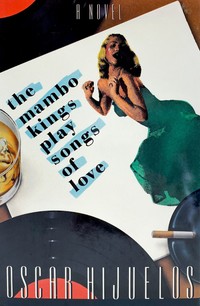
LOA: How did Hijuelos’s winning of the Pulitzer Prize for Mambo Kings affect him?
Carlson-Hijuelos: Winning the Pulitzer Prize in Fiction produced, basically, two responses from Oscar. First, he was enormously proud to have won (and particularly so because he knew that his success would open doors of opportunity to other Latino writers in the elitist New York publishing world). Secondly, he was extremely humbled (because he really understood the nature of humanity, the ways of the publishing rainmakers, and the fickle nature of literary fortune). He was grateful.
LOA: Mr. Ives’ Christmas is perhaps Hijuelos’s most religious novel, or at least the novel where he addresses spiritual themes most directly. What sort of spiritual vision do you think that novel expresses?
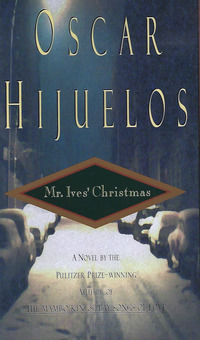
Carlson-Hijuelos: Oscar was a deeply soulful man, and if his readers read attentively enough, they will see a strong spiritual thread in all his works. But, yes, Mr. Ives’ Christmas is a work about morality that shimmers in a religious context, particularly the Judeo/Christian framework of redemption and forgiveness. Many readers are struck by a kind of mystical component in the novel. The protagonist Mr. Ives, in fact, has one very surprising mystical vision . . . when he least expects it.
LOA: Could you talk about some of the books and writers who were important to Hijuelos?
Carlson-Hijuelos: I can mention a few writers Oscar deeply admired and read often. Charles Dickens, William Blake, Mark Twain, James Joyce, Robert Graves, Gabriel García Márquez, Marguerite Yourcenar, Ralph Ellison, Jorge Luis Borges, Toni Morrison, Donald Barthelme, August Wilson, and Jim Crace. These are just a few.
LOA: Hijuelos sometimes complained, or at least noted, that journalists would get things wrong about him. Is there a particular misconception you’d like to correct?
Carlson-Hijuelos: Journalists? Or perhaps literary critics. Let’s just say that a significant number didn’t understand that his writing wasn’t driven by matters of ethnicity but rather by his intellectual obsessions.
LOA: Could you reflect on the importance of music to Hijuelos’s life and work?
Carlson-Hijuelos: Music was equal to literature as far as Oscar’s passions go. He was a novelist and a musician. He listened to music all day. He loved classical works, rock, jazz, Latin, African, and Middle Eastern soundscapes. His tastes were far-reaching.
LOA: Hijuelos would have been seventy-two today, had he lived. What sorts of books might he have been interested in writing if his life hadn’t been cut short?
Carlson-Hijuelos: He would have completed his opus, “Blue Antiquity,” a novel that he had worked on for decades about religion, archaeology, history, and philosophy. He most likely would have written another young adult novel (Dark Dude was his first YA book, published by Atheneum). And he told me that he was going to write a book about me. I’d like to think that Oscar would have continued to write novels that came to him in dreams, visions, and wisps of inspiration. Books about the souls of human beings.
Lori Marie Carlson-Hijuelos has edited the collections Cool Salsa, Red Hot Salsa, and A Path to the World: Becoming You. She is author of the novels The Sunday Tertulia, The Flamboyant, and A Stitch in Air, and the translator of Marjorie Agosín’s La luz del deseo (The Light of Desire).
